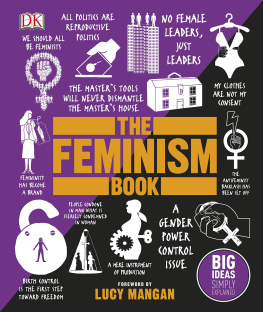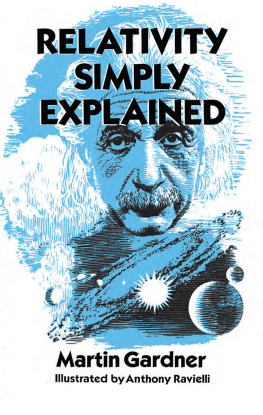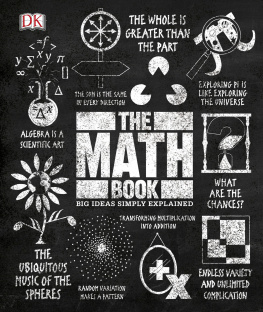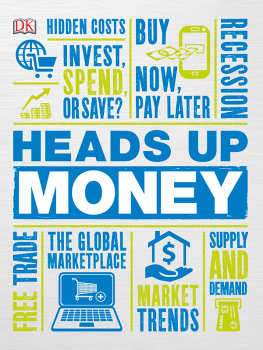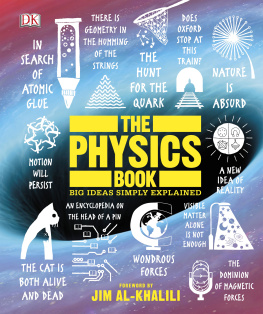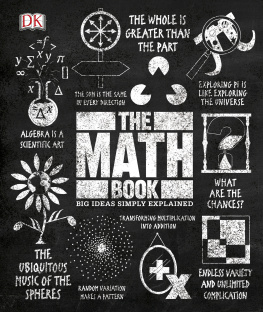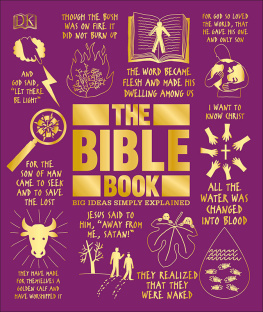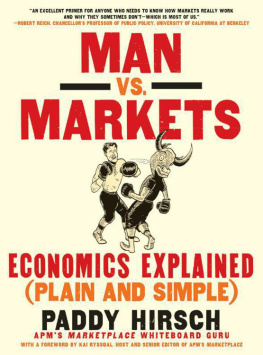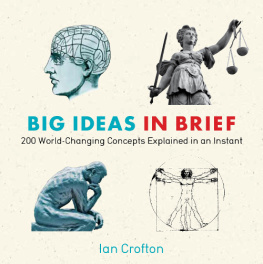DK Publishing - The Economics Book (Big Ideas Simply Explained)
Here you can read online DK Publishing - The Economics Book (Big Ideas Simply Explained) full text of the book (entire story) in english for free. Download pdf and epub, get meaning, cover and reviews about this ebook. year: 2014, publisher: DK Publishing, genre: Politics. Description of the work, (preface) as well as reviews are available. Best literature library LitArk.com created for fans of good reading and offers a wide selection of genres:
Romance novel
Science fiction
Adventure
Detective
Science
History
Home and family
Prose
Art
Politics
Computer
Non-fiction
Religion
Business
Children
Humor
Choose a favorite category and find really read worthwhile books. Enjoy immersion in the world of imagination, feel the emotions of the characters or learn something new for yourself, make an fascinating discovery.

- Book:The Economics Book (Big Ideas Simply Explained)
- Author:
- Publisher:DK Publishing
- Genre:
- Year:2014
- Rating:3 / 5
- Favourites:Add to favourites
- Your mark:
- 60
- 1
- 2
- 3
- 4
- 5
The Economics Book (Big Ideas Simply Explained): summary, description and annotation
We offer to read an annotation, description, summary or preface (depends on what the author of the book "The Economics Book (Big Ideas Simply Explained)" wrote himself). If you haven't found the necessary information about the book — write in the comments, we will try to find it.
The Economics Book (Big Ideas Simply Explained) — read online for free the complete book (whole text) full work
Below is the text of the book, divided by pages. System saving the place of the last page read, allows you to conveniently read the book "The Economics Book (Big Ideas Simply Explained)" online for free, without having to search again every time where you left off. Put a bookmark, and you can go to the page where you finished reading at any time.
Font size:
Interval:
Bookmark:


Few people would claim to know very much about economics, perhaps seeing it as a complex and esoteric subject with little relevance to their everyday lives. It has been generally felt to be the preserve of professionals in business, finance, and government. Yet most of us are becoming more aware of its influence on our wealth and well-being, and we may also have opinionsoften quite strong onesabout the rising cost of living, taxes, government spending, and so on. Sometimes these opinions are based on an instant reaction to an item in the news, but they are also frequently the subject of discussions in the workplace or over the dinner table. So to some extent, we do all take an interest in economics. The arguments we use to justify our opinions are generally the same as those used by economists, so a better knowledge of their theories can give us a better understanding of the economic principles that are at play in our lives.
"In economics, hope and faith coexist with great scientific pretension and also a deep desire for respectability."
John Kenneth Galbraith
Canadian-US economist (19082006)
Today, with the world in apparent economic turmoil, it seems more important than ever to learn something about economics. Far from occupying a separate section of our newspaper or making up a small part of the television news, economic news now regularly makes the headlines. As early as 1997, the US Republican political campaign strategist Robert Teeter noted its dominance, saying, Look at the declining television coverage [of politics]. Look at the declining voting rate. Economics and economic news is what moves the country now, not politics.
Yet how much do we really understand when we hear about rising unemployment, inflation, stock market crises, and trading deficits? When were asked to tighten our belts or pay more taxes, do we know why? And when we seem to be at the mercy of risk-taking banks and big corporations, do we know how they came to be so powerful or understand the reasons for their original and continued existence? The discipline of economics is at the heart of questions such as these.
Despite the importance and centrality of economics to many issues that affect us all, economics as a discipline is often viewed with suspicion. A popular conception is that it is dry and academic, due to its reliance on statistics, graphs, and formulas. The 19th-century Scottish historian Thomas Carlyle described economics as the dismal science that is dreary, desolate, and, indeed, quite abject and distressing. Another common misconception is that it is all about money, and while this has a grain of truth, it is by no means the whole picture.
"The first lesson of economics is scarcity: there is never enough of anything to satisfy all those who want it. The first lesson of politics is to disregard the first lesson of economics."
Thomas Sowell
US economist (1930)
So, what is economics all about? The word is derived from the Greek word Oikonomia , meaning household management, and it has come to mean the study of the way we manage our resources, and more specifically, the production and exchange of goods and services. Of course, the business of producing goods and providing services is as old as civilization, but the study of how the process works in practice is comparatively new. It evolved only gradually; philosophers and politicians have expressed their opinions on economic matters since the time of the ancient Greeks, but the first true economists to make a study of the subject did not appear until the end of the 18th century.
At that time the study was known as political economy, and had emerged as a branch of political philosophy. However, those studying its theories increasingly felt that it should be distinguished as a subject in its own right and began to refer to it as economic science. This later became popularized in the shorter form of economics.

Is economics a science? The 19th-century economists certainly liked to think so, and although Carlyle thought it dismal, even he dignified it with the label of science. Much economic theory was modeled on mathematics and even physics (perhaps the -ics ending of economics helped to lend it scientific respectability), and it sought to determine the laws that govern how the economy behaves, in the same way that scientists had discovered the physical laws underlying natural phenomena. Economies, however, are man-made and are dependent on the rational or irrational behavior of the humans that act within them, so economics as a science has more in common with the soft sciences of psychology, sociology, and politics.
Economics was perhaps best defined by British economist Lionel Robbins. In 1932, he described it in his Essay on the Nature and Significance of Economic Science as the science which studies human behavior as a relationship between ends and scarce means which have alternative uses. This broad definition remains the most popular one in use today.
The most important difference between economics and other sciences, however, is that the systems it examines are fluid. As well as describing and explaining economies and how they function, economists can also suggest how they ought to be constructed or can be improved.
Modern economics emerged as a distinct discipline in the 18th century, in particular with the publication in 1776 of The Wealth of Nations , written by the great Scottish thinker Adam Smith. However, what prompted interest in the subject was not so much the writings of economists as the enormous changes in the economy itself with the advent of the Industrial Revolution. Previous thinkers had commented on the management of goods and services within societies, treating questions that arose as problems for moral or political philosophy. But with the arrival of factories and mass producers of goods came a new era of economic organization that looked at the bigger picture. This was the beginning of the so-called market economy.
Smiths analysis of the new system set the standard with a comprehensive explanation of the competitive market. Smith suggested that the market is guided by an invisible hand, where the rational actions of self-interested individuals ultimately give the wider society exactly what it needs. Smith was a philosopher, and the subject of his book was political economyit stretched beyond economics to include politics, history, philosophy, and anthropology. After Smith a new breed of economic thinkers emerged who chose to concentrate entirely on the economy. Each of these built upon our understanding of the economyhow it works and how it should be managedand laid the foundations for the various branches of economics.
As the discipline evolved, economists identified specific areas to examine. One approach was to look at the economy as a whole, either at a national or international level, which became known as macroeconomics. This area of economics takes in topics such as growth and development, measurement of a countrys wealth in terms of output and income, and its policies for international trade, taxation, and controlling inflation and unemployment. In contrast, what we now call microeconomics looks at the interactions of individual people and firms within the economy: the business of supply and demand, buyers and sellers, markets and competition.
Font size:
Interval:
Bookmark:
Similar books «The Economics Book (Big Ideas Simply Explained)»
Look at similar books to The Economics Book (Big Ideas Simply Explained). We have selected literature similar in name and meaning in the hope of providing readers with more options to find new, interesting, not yet read works.
Discussion, reviews of the book The Economics Book (Big Ideas Simply Explained) and just readers' own opinions. Leave your comments, write what you think about the work, its meaning or the main characters. Specify what exactly you liked and what you didn't like, and why you think so.







